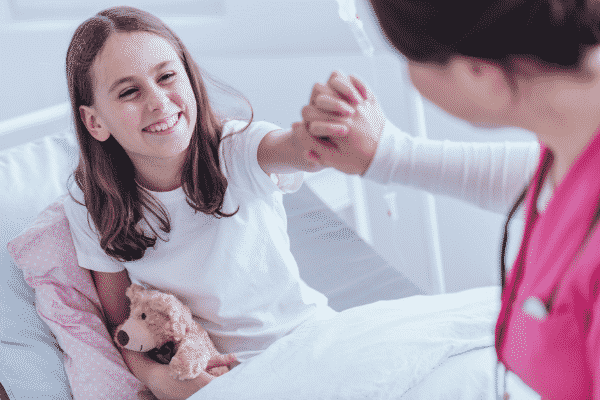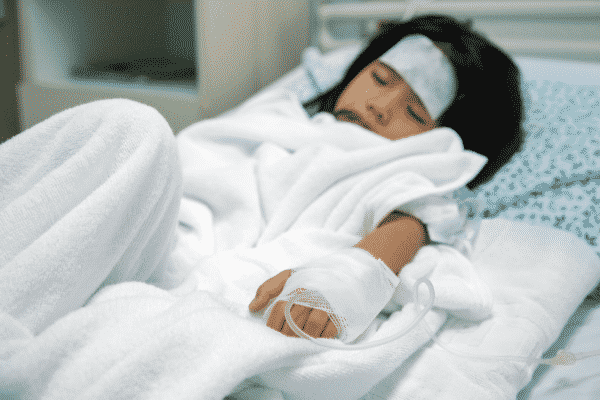Sleeping well at night can make you feel better, give you more energy and promote health and healing. There’s no denying that sleeping well in hospital can be hard; it’s an unfamiliar environment without the comforts of home, but there are things patients, parents and carers can do to ensure they get the best night’s sleep possible during their hospital stay.
How the hospital environment can affect you and your child’s sleep
Many parents and children find it hard to get a good night’s sleep in the hospital environment. There are many factors that could affect your and your child’s sleep in the hospital. These include:
- Lighting in the hospital room can be too bright at night or dark during the day
- Sharing the room space with other children and families
- Regular check-ups and observations during the night
- Symptoms caused by your child’s underlying disease or treatment such as pain, anxiety or trouble breathing.
- Some medications might make your child sleepier or keep them awake at night
- Some parents and children find that sleeping on a different mattress affects the quality of their sleep

How to improve sleep in the hospital
If you or your child have trouble sleeping in the hospital, try the ideas below.
Bring items from home You may want to consider bringing certain items from home to make you feel more comfortable. These include:
- Familiar Pillows
- Your child’s favourite sleeping toy, blanket or comforters
- A good book for you, nightwear and some toiletries
- Earplugs
- An eye mask
- Slippers
During the day open windows (if your room has one!) or simply include some light physical activity in the sun. Light helps set your body’s internal clock.
Limit daytime napping
Taking naps late in the afternoon can make it difficult for you and your child to fall asleep at night
Speak to your doctor or nurse Where possible changing medication times and reducing frequency of observations overnight might help you and your child have uninterrupted sleep.
At bedtime Avoid caffeine containing foods and drinks. Beware of hidden sources of caffeine such as chocolates and cola drinks. You and your child should finish dinner at least 3 hours before you want to go to sleep.
Other tips to help you sleep better
- Have a sleep routine in hospital You and your child could still try and keep a sleep routine in hospital. Pick any three activities such as reading, massage, meditation, listening to soothing music using headphones etc consistently before bedtime.
- Make your bed sleep-friendly Turn off all electronic devices (phones, laptops and iPads) at least an hour before bedtime. If you or your child can’t fall asleep, try a short activity such as reading a book for 30 minutes. Some adults and children may find deep breathing exercises before bedtime relaxing.
- Keep your room dark Close the curtains. Use an eye mask.
- The right temperature Make sure your room is not too cold or hot. Nursing staff can provide or remove extra blankets if needed.
There’s no denying that it can be tricky to get good sleep in hospital, but working with your treating team and implementing the above tips will give you the best possible chance at much needed sleep.
READ ALSO: Encouraging good sleep habits in children
Link up with us!
Indian Link News website: Save our website as a bookmark
Indian Link E-Newsletter: Subscribe to our weekly e-newsletter
Indian Link Newspaper: Click here to read our e-paper
Indian Link app: Download our app from Apple’s App Store or Google Play and subscribe to the alerts
Facebook: facebook.com/IndianLinkAustralia/
Twitter: @indian_link
Instagram: @indianlink
LinkedIn: linkedin.com/IndianLinkMediaGroup




